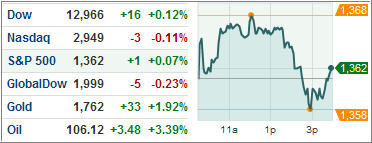The Greek torment finally ended (I hope) as Eurogroup Finance Ministers agreed to a long-awaited €130 billion second bailout package early on Tuesday. The final deal arm-twisted the private holders of Greek debt to accept even higher losses than they had agreed to last month.
European officials now say that private lenders, led by banks and hedge funds, have agreed to accept a voluntary 53.5 percent haircut despite approving a 50 percent cut in the face-value of bonds in October in a meeting with German Chancellor Angela Merkel and French President Nicholas Sarkozy.
The new deal doesn’t leave much room for euphoria, though Athens managed to stay on in the economic zone and managed to avoid a disorderly default that could have sent global markets in a tizzy.
Both Christine Lagarde, managing director of the International Monetary Fund, and Jean-Claude Juncker, chairman of the eurogroup finance ministers warned that Greece still needs to take a series of steps by the end of the month before the IMF and/or the eurozone governments sign off the deal.
The final bailout package came with several strings attached. Tough new austerity measures need to be implemented to bring the country’s debt-GDP ratio by 120 percent by 2020 from the current 160 percent. The country’s economy has already shrunk by 7 percent in 2011.
Greece’s economy was roughly the size of Switzerland’s before the current crisis hit. It’s barely come down to the size of the Czech Republic now. Between now and 2020, the economy may shrink by another 30 percent, having much deeper impact than the great depression witnessed in the US in ‘30s, which makes me wonder how on earth they will grow their way out of this mess.
The eurozone’s own debt stability report warns that there is a strong possibility of it forking out another €245 billion by the end of the decade to save Athens from going down under. Some experts doubt if this is a comprehensive and sustainable solution to the crisis.
Greece now has to maintain three-month worth of debt repayment money in the escrow account till it changes its constitution to make debt repayment the highest government priority. Additionally, a permanent team of monitors will oversee Athens complies with the terms of the bailout package at all times.
In return, national central banks in the eurozone that hold about €12 billion of Greek bonds will contribute all income generated from the bonds to Athens till the end of the decade. Official lenders also agreed to cut the interest rates by 0.5 percent on bailout loans for the next five years and by 1.5 percent thereafter. Both the initiatives are expected to lower debt levels by another 4.6 percent by 2020 and help the country achieve a debt-GDP ratio of 120.5 percent by then.
The lower rates will mean the EZ member states will now borrow high and lend low, thus losing money on the loans. The European Central Bank will however distribute the profits generated on its €40 billion Greek holdings to the members, partly compensating for the losses.
Meanwhile, US stocks ended near-flat on Tuesday, paring early gains ignited by the debt settlement news. The DJIA briefly breached the 13,000 mark for the first time since May 2008, before closing at 12,996, a modest gain of 16 points or 0.1 percent. The NASDAQ shed three points while the S&P 500 added 1 point.
The euro rose to a high of 1.3293 against the greenback before tracing back to 1.3255 by midday Tuesday in New York, up 0.1 percent.
In the metals market, copper prices rallied more than 3 percent, breaking the key 90-day moving average, though slowing Chinese demand remains a concern. Oil prices climbed on Greek debt worries and after Iran said it will stop oil supply to Britain and France. New York’s main contract, light sweet crude for March, rose $1.43 to $104.67. Gold (GLD) rallied $33 while homebuilders (XHB) headed south.
If there are no adverse news coming out of Europe, I expect the assault on Dow 13k to continue, while the S&P 500 may try again to pierce its 1,370 glass ceiling.
FYI, the updated ETF Model Portfolio report will be posted tomorrow morning.
Contact Ulli
